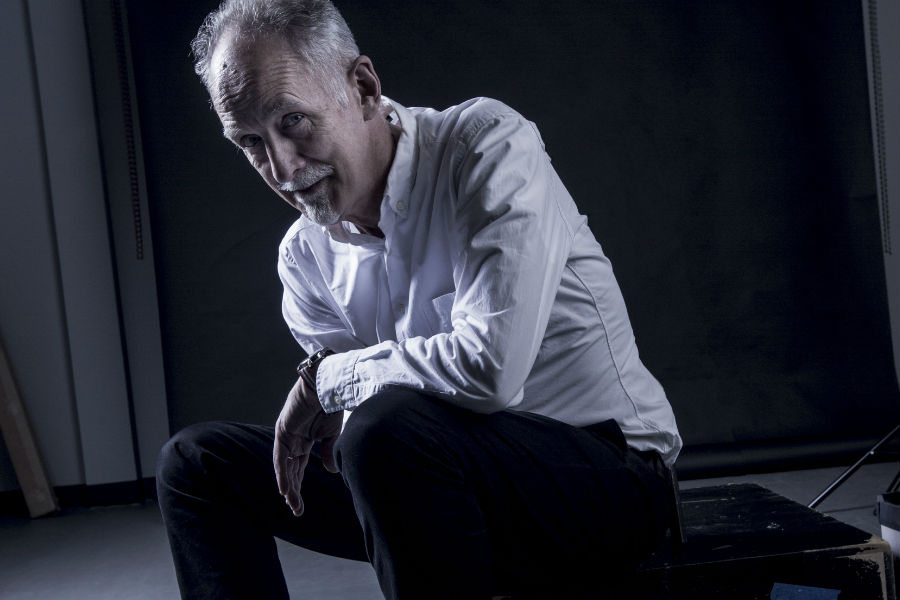Andrew Barnum has seen the eighties at it’s best and is now turning the conversation to the next generation.
One half of Vitabeats, celebrated eighties pop group, Andrew Barnum and his wife Lissa have been a part of the Australian music industry for decades. Still writing and recording music, Andrew is also on his way towards a PHD which turns the conversation on contemporary Australian artists and their voices in the nation’s story. Music People caught up with Andrew to talk through his career as a musician, educator and now academic.
1. You have been active in the music industry for a number of years, can you speak to your career thus far.
Basically, Lissa and I met when I was a singer-songwriter and member of a post-punk pop band called ‘The Decades’ in 1979 in LA. Formed visual post-punk/electro pop group ‘Live Nude Girl’ in LA. Sent demos to friends in Sydney, were married 1981 and came to Sydney as wedding present. Then relocated to Sydney from LA 1982 with prospects of a music project signing.
First publishing and recording deals signed in the early 80s as independent duo Vitabeats (Lissandrew Music) with Lissa Barnum. Festival, Hot, CBS, EMI. Had a national hit in Australia with ‘Boom Box’ followed by the release of album ‘Spot the Spanner’ featuring single ‘Audrey’, and ‘Build it right’ from the soundtrack to Aus film ‘Emoh Ruo.’
Since then I’ve been an indie singer-songwriter writing and recording solo albums.
1990 I met indie producer Boris Hunt. From then to today have written and recorded 6 independent albums by Andrew Barnum.
2. You’re now an educator in arts, what do you see as being the three most important things people should understand about arts in Australia?
1. You need a portfolio career where you develop and sustain a range of skills, attributes and abilities. Total specialisation in one area is fairly unsustainable, styles go out of fashion. Work in as many areas as you can to learn the ropes. Be an all-rounder with an eye to a specialisation.
2. In Australia arts support is a small pot for a lot of applicants. Especially during Liberal governments. You should apply for grants and schemes, but be patient and persevere.
In Australia generally the road to a career in Australia starts with a ton of belief in yourself, slog, distance, starvation & poverty, disappointment and heartache. It’s a long way to the top etc. Have your eyes wide-open and be ready for a marathon, not a sprint. Yes, you will get there.
3. Sustain your passion with like-minded people. They are your lifeblood, your die-hard mates. Foster a reliable network.You will have successes, but also collapses. Have a safety net of friends, and family to rely on. Be prepared for whatever happens.
3. You’re currently working on a PHD can you expand a little on what you are researching and why it’s so important to you? and also what you have found as a result of your work?
I’m exploring Identity, Artifact and Practice in Australian song in the age of digital music. I’ve interviewed 25 passionate local songwriters to find out what the notion of an Australian songwriter means in the current era. Having lived through a remarkable time as an artist from 1980-2000,
when Australian song ruled the airwaves, I’m seeking to find where local song is located in the transformed digital world.
Is the previous notion of an Australian songwriter even applicable anymore? Most participants reference Paul Kelly as the embodiment of the Australian songwriter, who is there to follow on his tradition? The idea of an Australian songwriter is definitely alive with women, who I’ve found have a different ecological approach to a song culture than men do. I’m passionate about the gap between indie (local) and commercial (location-less), and believe that song produces national artefacts that bind us together as a society, and explain ourselves from an identity perspective, to ourselves as Australians. Local song helps us belong somewhere other than the internet.
4. As a professional with a background in writing, recording, performance and now academia, what you do you feel like needs to be a part of the conversation in our industry and why?
I believe that local production in song, music, literature, and performance that reveals local narrative, multi-cultural language and place is crucial to our global success. People are interested in Australia, when we’re actually being Australian. Speaking our own language, our mother tongue from within our own skins. Not applying the blackface and performing as an American or whoever else (Lott). I know that Australian identity is a deeply contested question, what does being an Australian actually mean? It’s a really complex, multi-layered question for a multi-cultural nation. We all know who we are not, but honestly who are we? Local song is one place that tells us the answer.
5. The Australian music industry. Why is it a great place to be?
It’s a great place to be if you’re riding a wave of acceptance, getting the nod from the tastemakers and gatekeepers, and finding your way to an audience, getting your song added to a playlist. No doubt. It’s not such a great place if you’re not anywhere near that flavour, not quite this or not quite that. That’s a weird space. It’s a great place when you can get heard and seen, make recordings, make videos, play live and sustain a meaningful practice. In the meantime, it’s a great place to be if you can be yourself.
To learn more about Andrew head to his profile.
